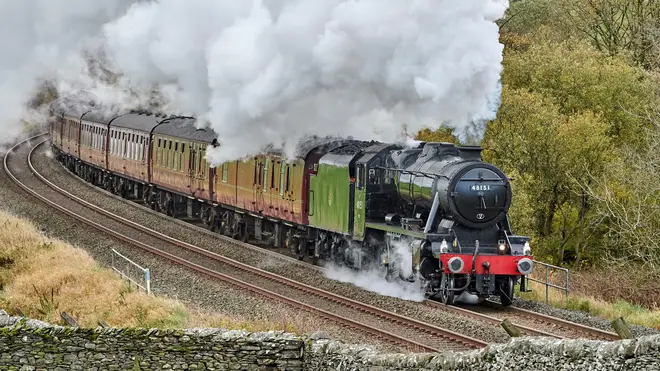
Ian Payne 4am - 7am
8 November 2021, 14:08

English universities and museums will explore the links between steam trains and the global slave trade as part of major new research project.
Curators from the National Railway Museum and academics from the universities of York, Leeds and Sheffield have teamed up for the £9,000 project.
Titled Slavery and Steam: steam power, railways and colonialism, it will examine "the economic, social and infrastructural legacy of steam and slavery across the later nineteenth and twentieth centuries".
READ MORE: Plantation Wharf development in London could be renamed amid slave trade row
It will look at how steam power aided British colonial expansion and the use of it across the empire.
The University of York’s Professor Jonathan Finch, who is leading the project, described the relationship between the railways and slavery as "complex".
He said: "Steam engines replaced wind power on the plantations and waterpower in British cotton mills, steamboats transported raw materials and goods around the globe.

James reacts as City of London decides to keep slave trader statues.
"Railways were critical to the expansion of colonial power across Asia and Africa, as well as the opening up of the North American interior.
"Wealth generated in the colonies was a stimulus to industrialisation, long after the abolition of slavery in the UK and US."
Dr Oliver Betts, research lead at the National Railway Museum, added: "We are examining Britain's colonial past to look again at the stories we tell, the voices we represent, and the challenges we face in presenting complex, hitherto untold stories to the public."
The White Rose University Consortium, which is funding the project, said in a statement: "Academic interest in the topic is uneven and spread across various disciplines, but there has been little dedicated interdisciplinary study on the late-eighteenth and early-nineteenth centuries when the established commercial, political, legal, and human networks and frameworks of slavery fed into the emerging systems of steam and railway infrastructure."